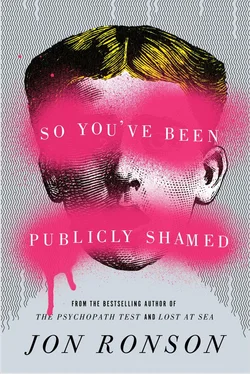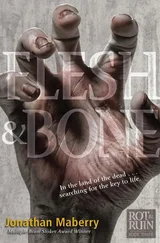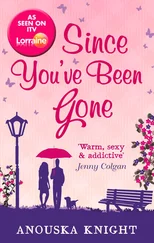I heard Jonah’s daughter crying in the background. We talked about the “slippery slope” that led to the fake Dylan quotes. It began with the self-plagiarism — with Jonah reusing his own paragraphs in different stories. I told him I didn’t consider that the crime of the century. “Frank Sinatra doesn’t only sing ‘My Way’ once,” I said.
“The self-plagiarism should have been a warning sign,” Jonah said. “It should have been a sign that I was stretched. If I needed to recycle my own material, why was I bothering to write this blog post in the first place? Look, we can debate the ethics of it. And I’ve certainly heard lots of debate about this. But at the time I didn’t think it was wrong. If I’d thought it was wrong, I would have taken some trouble to hide my tracks.” He paused. “It should have been a huge flashing neon sign telling me, ‘You are getting careless.’ You’re taking shortcuts and not noticing, and shortcuts become habits, and you excuse them because you’re too busy. I wasn’t turning anything down.”
“What would have been wrong with turning things down?” I asked.
“It was some toxic mixture of insecurity and ambition,” said Jonah. “I always felt like a fad. I felt like I was going to be hot for a second and then I would disappear. So I had to act while I could. And there was just some deep-seated… I sound like I’m on a couch with my shrink… some very dangerous and reckless ambition. You combine insecurity and ambition, and you get an inability to say no to things. And then one day you get an e-mail saying there’s these four [six] Dylan quotes, and they can’t be explained, and they can’t be found anywhere else, and you realize you made them up in your book proposal three years before, and you were too lazy, too stupid, to ever check. I can only wish, and I wish this profoundly, I’d had the temerity, the courage, to do a fact check on my last book. But as anyone who does a fact check knows, they’re not particularly fun things to go through. Your story gets a little flatter. You’re forced to grapple with all your mistakes, conscious and unconscious…”
“So you forgot that the fake quotes were in the book?” I asked Jonah.
“ Forget gets me off the hook too easily,” he replied. “I didn’t want to remember. So I made no effort to. I wrote well. So why check?”
“So you were sloppy?”
“I don’t want to just blame sloppiness,” he said. “It was sloppiness and deception. Sloppiness and lies. I lied to cover up the sloppiness.”
I’d been thinking that when I told Jonah his speech was fantastic it was probably a bad steer. In truth, I’d needed to read it three or four times on the plane because the words kept swirling around on the page, and I didn’t know whether that was a reflection of attention deficiency on my part or abstruse phrasing on Jonah’s. But like all journalists, I really love a scoop — a scoop keeps at bay the scream of failure — and I thought that telling him it was fantastic was my best chance of winning the interview.
“I worked really hard on it,” Jonah said. “I was looking at the Twitter stream during it and the things people were saying… Some people saw the FBI analogies as the worst possible thing in the world. But that’s not some deceptive trick. That’s the way I make sense of the world. That’s how I think. Clearly it was a mistake. But…”
“That Twitter stream!” I said.
“I was trying to apologize, and to see the response to it live… I didn’t know if I was going to get through that. I had to turn off some emotional switch in me. I think I had to shut down.”
“What are the tweets you remember most?”
“It wasn’t the totally off-the-wall cruel ones, because those are so easy to discount,” he said. “It’s the ones that mixed in a little tenderness with the shiv.”
“Like what?”
“I don’t want to…”
Jonah said he couldn’t judge why people “got so mad” about his apology. I said I thought it was because it sounded too much like a Jonah Lehrer speech from the old days. People wanted to see him altered somehow. His not being overtly cowed gave the audience permission to envisage him dramatically, a monster immune to shame.
“They didn’t want you to intellectualize it,” I said. “They wanted you to be emotional. If you’d been more emotional, they’d have gone for it more.”
Jonah sighed. “That may have been a better strategy,” he said. “But it wasn’t a strategy I wanted to rehearse onstage. It was not something I wanted to share with the universe, with everyone on Twitter. I didn’t want to talk about how this had ruined me. That’s something for me to deal with, and for my loved ones to help me through. But that’s not something I wanted to get up onstage in front of the Internet and talk about.”
“Why not?” I asked.
“Oh, gosh, I don’t know,” said Jonah. “Could you do that?”
“Yes,” I said. “I think I could. And I think that would mean I’d survive better than you.”
“So what would Jon Ronson’s apology speech be?” Jonah said. “What would you say?”
“Right,” I said. “I’d say… okay… I… Hello. I’m Jon Ronson and I want to apologize for…” What would I say? I cleared my throat. “I just want everyone to know that I’m really upset…”
Jonah was listening patiently on the line. I stopped. Even though I was just play-acting, I felt wiped out. And I hadn’t really even got anywhere in my attempt.
“What happened to you is my worst nightmare,” I said.
“Yeah,” Jonah replied. “It was mine too.”
• • •
Four more months passed. The winter became the early summer. Then, unexpectedly, Andrew Wylie began shopping a new Jonah Lehrer book proposal around New York City’s publishers. A Book About Love . The proposal was immediately leaked to The New York Times . In it Jonah described the moment he felt “the shiver of a voice mail message.”
I have been found out. I puke into a recycling bin. And then I start to cry. Why was I crying? I had been caught in a lie, a desperate attempt to conceal my mistakes. And now it was clear that, within 24 hours, my fall would begin. I would lose my job and my reputation. My private shame would become public.
Jonah then described leaving St. Louis and returning to Los Angeles, his suit and shirt “stained with sweat and vomit.”
I open the front door and take off my dirty shirt and weep on the shoulder of my wife. My wife is caring but confused: How the hell could I be so reckless? I have no good answers.
— JONAH LEHRER’S BOOK PROPOSAL, AS LEAKED TO The New York Times , JUNE 6, 2013
The New York media community declared itself resolutely indifferent to Jonah’s suffering. “‘Recycling bin’ is a hilarious choice of detail for the compulsive plagiarist,” wrote Gawker ’s Tom Scocca. “And, obviously: Bring us two witnesses who saw you puke when and where you claim you puked. Or don’t bother.”
And then, to my amazement, Slate ’s Daniel Engber announced that he had spent a day combing through Jonah’s proposal and believed he had uncovered plagiarism within it.
Surely Jonah hadn’t been that insanely reckless?
—
When I read Engber’s article closer, things didn’t seem quite so clear-cut. “A chapter on the secret to having a happy marriage,” Engber writes, “comes close to copying a recent essay on the same subject by Adam Gopnik, Lehrer’s onetime colleague at The New Yorker .”
Gopnik: In 1838, when Darwin was first thinking of marriage, he made an irresistible series of notes on the subject — a scientific-seeming list of marriage pros and cons… In favor of marriage, he included the acquisition of a “constant companion and friend in old age” and, memorably and conclusively, decided that a wife would be “better than a dog, anyhow.”
Читать дальше












